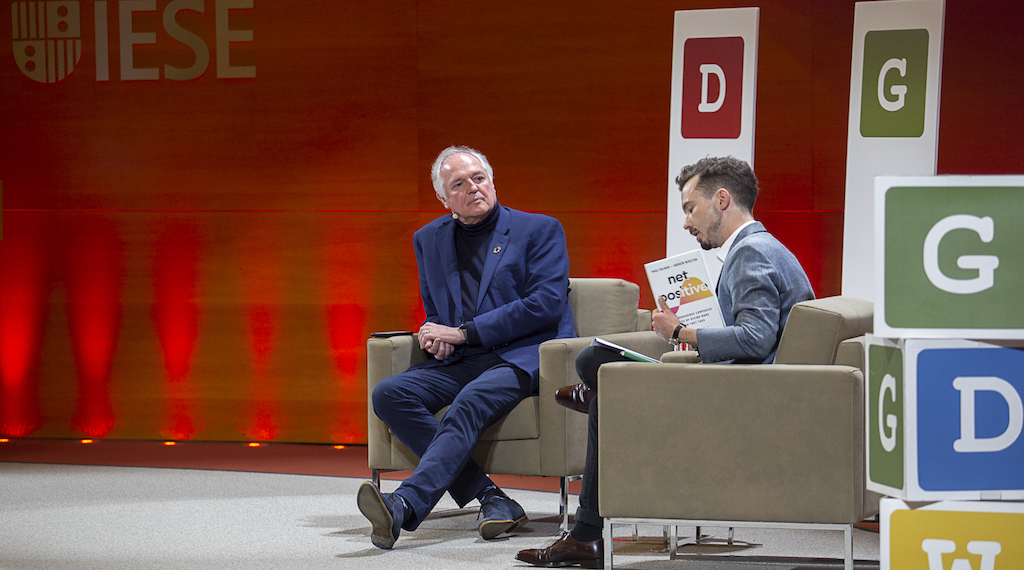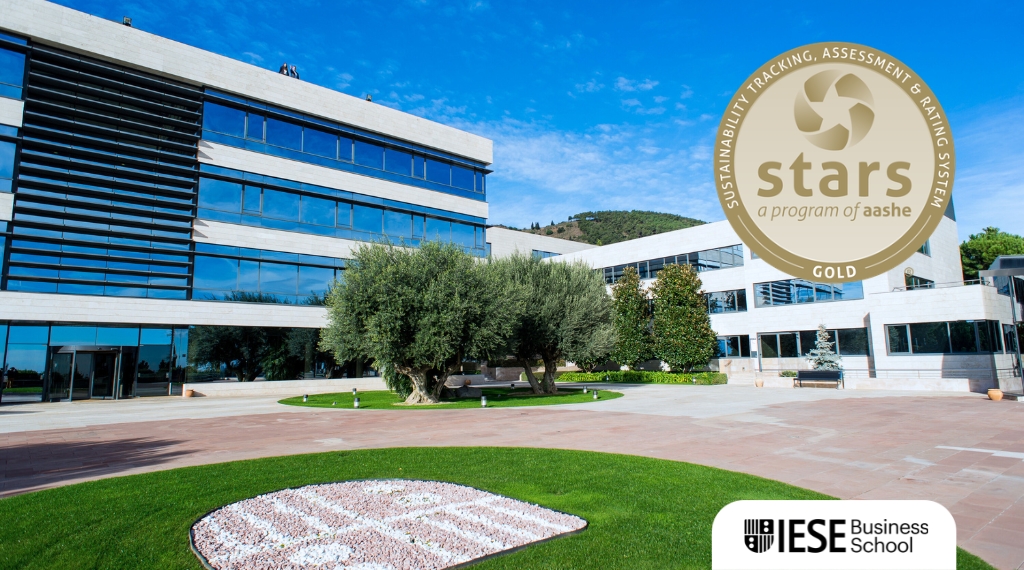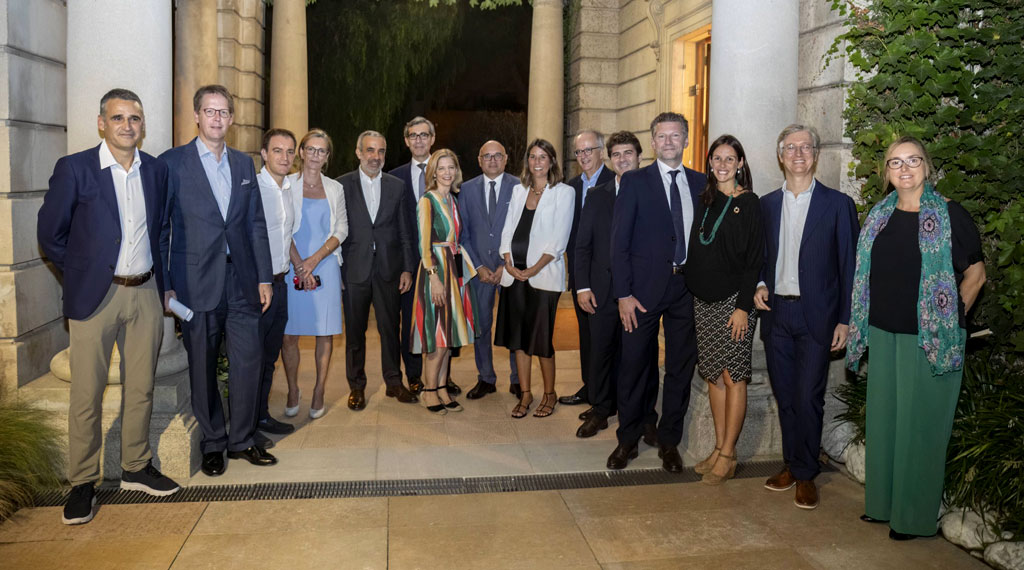Stories
Doing Good Doing Well conference welcomes game-changing leaders
IESE Barcelona hosts event focused on the urgency of sustainability actions
Paul Polman delivered the event’s General Keynote speech.
March 3, 2022

The planetary degradation of climate change is worsening at a time when a number of powerful nations are selfishly pursuing their own goals. Given the lack of persuasive, coordinated leadership by governments, businesses have no choice but to step up and help fight for systemic sustainable change.
Guest speakers from seven business sectors found common ground with that message at the annual Doing Good Doing Well conference held this week at IESE Barcelona. The event, organized entirely by IESE MBA students of the Responsible Business Club, welcomed game changers from the realms of impact investing, sustainable cities, education, sustainable food, clean oceans, energy and power, and the circular economy for two days of speeches, panels and workshops about how paradigms can shift and how attendees themselves could drive change.
Filling a void
“Normally, we rely on governments to put these frameworks in place, but unfortunately we don’t have the luxury right now,” said Paul Polman, the co-author of ¨Net Positive¨ and former CEO of Unilever. “They’ve become populist, nationalist and xenophobic while the problems have become more global.”
Businesses have the power to “de-risk” sustainability processes stalled or otherwise jeopardized by ineffective governments, but only if they do the difficult work of reevaluating their own longstanding priorities. Specifically, they would have to retreat from the theory introduced in 1970 by Milton Friedman that a business’s primary responsibility is to its shareholders and increasing profits.
“Americans became myopically focused on Friedman’s shareholder model,” Polman said. “And, yes, a lot of people have done very well. But we’ve seen the devastating effect on the private sector. We have half the number of publicly traded companies now than we did then. And a typical CEO tenure has gone from 10, 12 or 40 years to a current average of 4.5 years, which leads to a lack of accountability.”
There has been much lip service paid in recent years to moving business to a stakeholder, or purposeful, model. Yet Polman conceded that even companies that have set sustainability goals are, in truth, “kicking the can down the road.”
The increasingly calamitous effects of climate change may hasten the response. So too could a pronounced generational shift on valuing socially responsible business.
“The Great Resignation is really a serious issue,” Polman said. ¨We’re living in a world where 15% to 30% of the workforce is engaged. If companies don’t make these values come alive, truly, many millennials and Gen-Zers won’t work there anymore.
Every company has a Greta Thunberg in it and they’re speaking up.”
Your personal “why”
Dorothy Shaver, who delivered the keynote speech of the event’s Sustainable Food vertical, has made a point of speaking up throughout her career, which has brought her to her current role as Global Sustainability Lead at Unilever.
It’s a position she considers her calling, but at a company she was at first reluctant to join.
“I was once anti-Unilever,” Shaver said. “It was a brand I refused to promote when I was working as a clinical dietician at a long-term care facility.”
At that facility, Shaver’s bold proposal to move patients away from supplements and antidepressants and toward nutritious foods drastically reduced the number of cases of unhealthy weight change and depression among patients.
An offer at Unilever in New York followed. Shaver at first found herself drowning in Excel spreadsheets at the sort of multinational company seemingly at odds with her ambition of making positive social change. But Polman, then the CEO, had instituted a pioneering sustainability plan at the company that helped changed her mind.
What’s more, Shaver realized that “if you worked through these huge global brands you could shift where food was going. And we´d have a chance to feed the world in an equal and sustainable way.”
She was also guided by what she calls her “personal ‘why,’” the compass that should guide each of our decisions, no matter how ambitious or unexpected they may be. For Shaver that overarching “why” was nothing less than transforming the food system and thereby “unlocking human and planetary sustainability that is crucial to succession, life, happiness and equality.”
“Go back to your ‘why’ every time,” she advised attendees. “And make sure you can support it. You’re not going to be able to do this alone. You need an ecosystem of friends, an ecosystem of enemies and an ecosystem of people who will question you.”
The game-changing global sustainability lead then offered some surprising parting words: “I hope in the future there are no positions that include the word sustainability. We need to move far past sustaining to replenishing and regenerating. And it should be at the core of every single role.”


